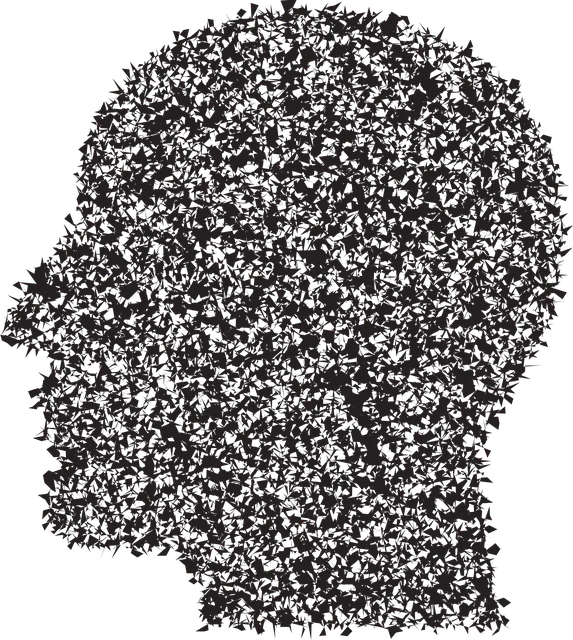Wheat Ridge Kaiser Permanente psychiatry prioritizes cultural competency, integrating Mind Over Matter principles into provider training to better understand diverse patient backgrounds and health traditions. Through evidence-based practices, holistic healing methods, and continuous training, they create a safe, supportive environment for mental wellness, ensuring equitable access to respectful care for all. Effective training strategies emphasizing trauma-informed care, emotional regulation, and communication skills are vital for delivering quality care to diverse patient populations with varied mental health needs.
Cultural competency training is an essential aspect of modern healthcare, especially with diverse patient populations. This article explores the critical role of educational programs in improving mental health services, focusing on the initiatives of Wheat Ridge Kaiser Permanente Psychiatry. We delve into the significance of understanding cultural nuances and how tailored training strategies can enhance patient care. By examining successful implementation, we highlight effective methods to foster inclusive practices within the psychiatric field, ensuring equitable healthcare for all.
- Understanding Cultural Competency in Healthcare: A Necessary Framework
- The Role of Wheat Ridge Kaiser Permanente Psychiatry in Promoting Diverse Care
- Implementing and Measuring Effective Training Strategies for Mental Health Professionals
Understanding Cultural Competency in Healthcare: A Necessary Framework

In the healthcare sector, cultural competency is an essential framework that enables providers to deliver quality care to a diverse range of patients. It involves understanding and appreciating the cultural differences, beliefs, and values of individuals from various ethnic, racial, and socioeconomic backgrounds. At Wheat Ridge Kaiser Permanente psychiatry, for instance, recognizing these nuances is paramount in fostering effective communication and building trust between healthcare professionals and their patients.
The integration of Mind Over Matter Principles within Healthcare Provider Cultural Competency Training equips medical staff with the tools to navigate complex cultural landscapes. By learning about different traditions, practices, and perceptions of health and illness, providers can offer more personalized and sensitive care. This training also emphasizes the impact of stress management, as cultural sensitivity can alleviate potential stressors for patients from diverse backgrounds, enhancing their overall well-being and treatment outcomes.
The Role of Wheat Ridge Kaiser Permanente Psychiatry in Promoting Diverse Care

Wheat Ridge Kaiser Permanente Psychiatry plays a pivotal role in promoting diverse and culturally competent care within the healthcare system. With a deep understanding of the various cultural, ethnic, and socioeconomic backgrounds of their patients, they strive to provide mental wellness support tailored to individual needs. The team employs evidence-based practices and innovative strategies to facilitate emotional healing processes, ensuring that all individuals receive respectful, equitable, and accessible treatment.
Through continuous training in cultural competency, Wheat Ridge Kaiser Permanente Psychiatry enhances its ability to deliver effective care. This includes learning about different beliefs, values, and communication styles, as well as incorporating diverse perspectives into therapeutic approaches. By focusing on stress reduction methods and holistic healing, the department aims to create a safe and supportive environment that respects the uniqueness of each patient’s journey towards mental wellness.
Implementing and Measuring Effective Training Strategies for Mental Health Professionals

Implementing effective training strategies for mental health professionals is paramount in providing quality care. At Wheat Ridge Kaiser Permanente psychiatry, experts emphasize the importance of cultural competency, especially when addressing diverse patient populations with varying mental health needs. Training should go beyond basic knowledge and focus on practical skills development, such as trauma-informed care, emotional regulation techniques, and effective communication strategies. These approaches enable professionals to build rapport with patients, fostering a safe and supportive environment that encourages open dialogue and recovery.
Mentor training programs can be enhanced through innovative methods like role-playing scenarios, group discussions, and peer coaching. Incorporating Mental Wellness Coaching Programs Development ensures professionals gain hands-on experience in guiding patients towards better Emotional Regulation. Regular assessments and feedback mechanisms are crucial to measure the impact of such training. By evaluating participant experiences and outcomes, organizations can refine their programs, ensuring continuous improvement and adaptability to evolving mental health care demands.
Cultural competency training is a game-changer in healthcare, especially at institutions like Wheat Ridge Kaiser Permanente psychiatry, where diverse communities seek care. By implementing and measuring effective training strategies, mental health professionals can better understand and address the unique needs of patients from various cultural backgrounds. This ensures that everyone receives respectful, equitable, and accessible mental health services, fostering a more inclusive and healing environment for all.






